When seeking to increase your sports skillswe naturally turn to food supplements in addition to the use of its dumbbells. These supplements, including theefficiency is provenThere is a wide range of products available, each one meeting specific needs. But how to choose between BCAA, creatine or even whey? It sometimes seems very difficult to find your way around. Here are all the necessary explanations to understand the interest of taking creatine and its effect on metabolismfor strength sports enthusiasts such as bodybuilding, who want to visibly increase their muscle mass.
What is creatine?
Unlike BCAA which is an essential amino acid, creatine is an oligopeptide, i.e. a non-essential amino acid in the diet.
It is synthesized in our body from 3 amino acids: methionine, arginine and glycine.
Creatine phosphate is thus naturally contained in the human body (about 120 g) and is found in the skeletal muscles at 95 %. The liver, kidneys and pancreas synthesize it.
Creatine is also found in food. Indeed, it is found in protein elements such as meat, poultry and fish. Thus, a balanced diet allows to consume 1 to 2 g daily. But not everyone is willing to follow this protein diet and would have to eat pounds of meat and fish daily to have a sufficient amount of creatine to improve performance. This is why supplements exist.
Some dietary supplements are specialized in providing creatine. Thus, regarding the creatine contained in food supplements, it is simply a synthetic derivative resulting from a chemical reaction. This is done between sodium sarcosine and cyanamide. In addition, other nutrients are often added to these supplements. We can find :
- vitamins and minerals;
- proteins ;
- glucose ;
- ribonucleic acid (RNA);
- glutamine ;
- taurine ;
- certain plant extracts.
Why use creatine as a sportsman?
Creatine acts on the metabolism. Athletes use it for 2 reasons:
- increase its content in the skeletal muscle;
- improve exercise performance, especially in weight training.
Indeed, if we increase the stock of creatine, then we increase the energy available, and we can therefore prolong the energy effort.
Thus, when bound to phosphate, creatine becomes a true source of energy for the muscle. It serves as a precursor for adenosine triphosphate (ATP) during catabolism, and ATP provides energy to the muscle cells during anabolism.
Thus, when we increase the level of creatinine in the blood, we promote :
- ATP renewal, especially during intense weight training sessions;
- Acceleration of phosphocreatine synthesis after exercise;
- water retention in the muscles, which leads to an increase in body weight and muscle volume (increase in muscle fibres).
Creatine therefore provides the energy the human body needs for its functioning, but also for its muscle development, as well as muscle recovery after intense physical effort. This sports nutrition does not only play a role in muscle growth, it also fights against fatigue by promoting recovery.
However, it is important to note that creatine intake is not suitable for all sports. Indeed, in some endurance sports, it will not have much effect. But in strength sports such as bodybuilding or weightlifting, taking a creatine supplement has great benefits. Indeed, it allows to train more intensely, and thus to gain muscle mass. This consumption allows an increase in sports performance of 10 to 15 %.
Which creatine to choose?
There are different types of creatine. The best known are :
- creatine monohydrate ;
- Creatine Ester ;
- tricreatine malate or creatine malate ;
- Creatine Kre-alkaline.
Thus, the creatine monohydrate (I recommend this one) is the best known creatine. It is considered the purest form of synthetic creatine. It has been consumed by bodybuilders since the 1970s.
The creatine ester owes its name to a process called "esterification". The creatine molecule is bound to a compound called ester, which helps it to enter the muscles. And thus it compensates for the lack of creatine monohydrate.
The creatine malate facilitates the conversion of creatine monohydrate into energy.
The creatine Kre-alkaline is the most recent form of creatine. Its pH has been modified so that it is better absorbed and assimilated by the body. It does not break down into creatinine when it comes into contact with water or body fluids. Thus, the muscles can assimilate the totality of the absorbed dose.
How to use it?
In order to improve sports performance and the development of muscle mass, it is recommended to consume creatine over a period of 3 to 6 months, or even over longer periods if training is done intensively all year round.
Ideally, creatine is taken with fruit juice, because fruit facilitates the rapid transport of creatine to the muscle fibres. It is ingested just before training at the gym, or when you wake up. However, the intake can be at a different time from one day to another without affecting its effectiveness. Following this intake, one proceeds to his training ofhypertrophy classic.
It has been shown that consuming creatine with protein and carbohydrates increases the amount of creatine absorbed by the muscles compared to taking creatine alone.
Throughout the day, it is important to ensure that you drink enough liquid, especially water, to avoid any risk of dehydration. Indeed, the risk of dehydration increases when taking this food supplement.
In addition, drinks such as caffeine or alcohol significantly reduce its absorption. It is therefore recommended not to consume them at the same time as creatine.
What dosage should I take?
Previously, it was recommended to practice a loading phase, i.e. high creatine consumption (20 g) for a week, then continue in a cruising phase with a dose of 3 g daily.
However, the latest research on this supplementation leads to change this protocol. Indeed, it has been shown that the loading phase is actually unnecessary.
The daily dosage is therefore 3 g per day during the entire period of intense physical activity.
It is important to note that 3 g is now the maximum daily dose recommended by the health authorities.
Difference between whey and creatine
The whey proteinThe use of these supplements in combination with strength training is essential for muscle growth.
Whey is used extensively because it provides the body with branched chain amino acids (BCAAs) that are metabolized directly into the muscle tissue, thus enhancing performance. During exercise and strength training, these amino acids are used first.
For its part, the creatine increases strength, lean mass and endurance. Indeed, converted into creatine phosphate, it is then stored in the muscles and used as energy. Then during muscular efforts, transformed into ATP, it becomes a major source of energy and allows to increase the muscular volume.
Therefore, they can promote muscle growth independently of each other, but taking them together can further enhance muscle growth.
A supplement to be used with care
Although the benefits of this dietary supplementation are recognized, there are some dangers associated with it.
There is a risk of dehydration. It is therefore imperative to drink at least 2 to 3 litres of water per day during the intake period. In addition, taking creatine also reduces glucose levels after meals. Diabetics must therefore be particularly careful with this supplement and must seek the advice of their doctor.
Things to remember
Creatine is a real asset for athletes who seek to develop their muscle strength, but also their volume. Combined with muscle building sessions, it allows you to reach your goals more quickly. The results are quickly visible (2 weeks in general) and the feeling of strength and power to surpass oneself during training is palpable from the first days.
Do you need a qualified coach to determine a complete and perfectly calibrated program?
Other articles to read :

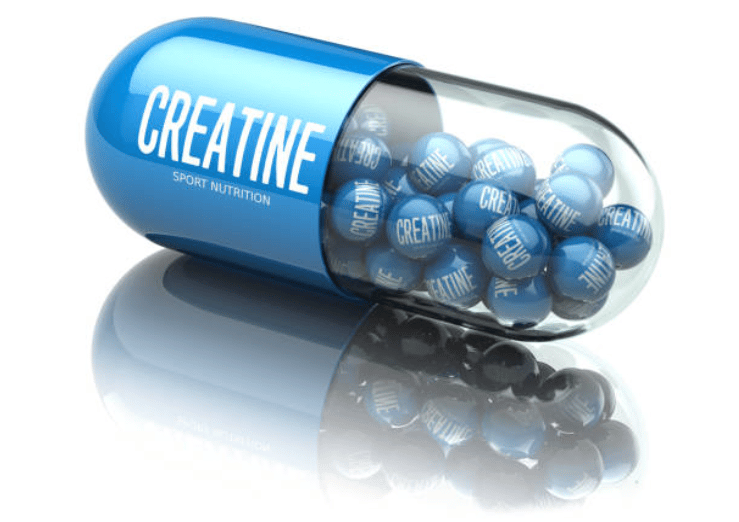

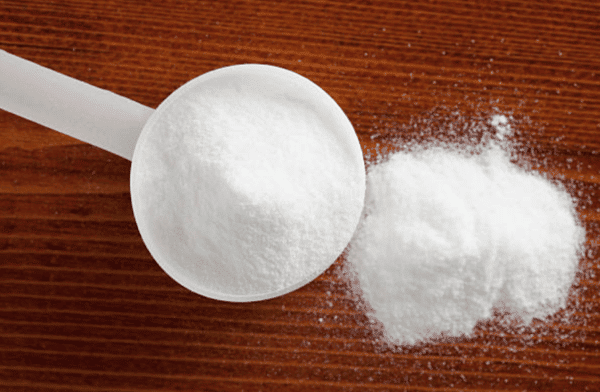
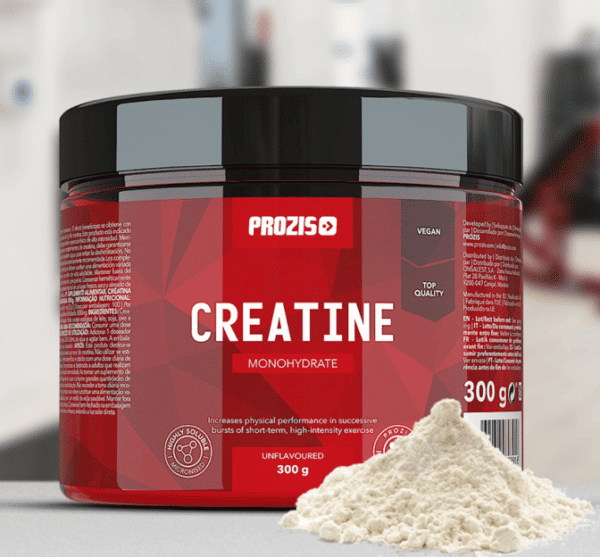
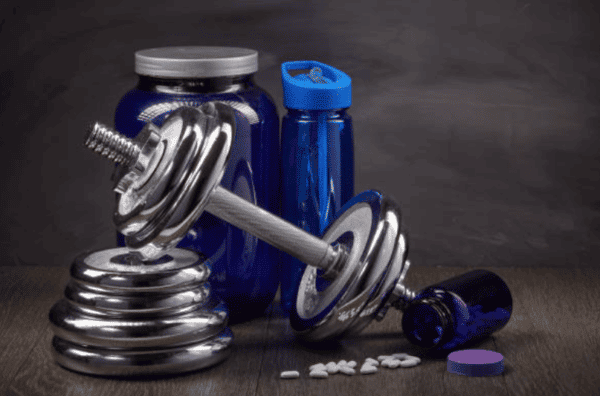
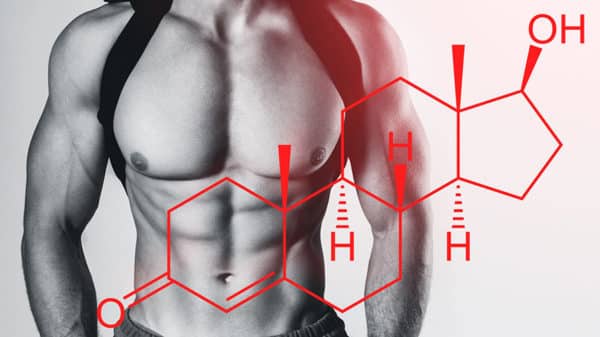





2 Comments
First of all, thank you Julien for all the valuable information in your blogs. It's always a real pleasure to read them. I have a question about the blood tests that can be done without and elevation of creatinine and thus a modified evaluation of the renal function. Is it normal to see elevations of creatinine as well as potassium if one has consumed a preparation containing creatinine (Prozis Workout for example) shortly before? Is this anecdotal or should we be concerned?
Thank you in advance for your answer and especially a thousand positive thoughts from the south of France!
High levels of creatinine are very common in bodybuilders. This is related to the waste products created by the intense efforts in bodybuilding and not to the consumption of proteins or creatine as the doctors would have us believe and especially scare us. Just do the experiment, you don't train for several days and you will do your blood tests and your creatinine levels will go back down by themselves. If you are afraid, just do an ultrasound of your kidneys like I did and you will see that you have no worries.